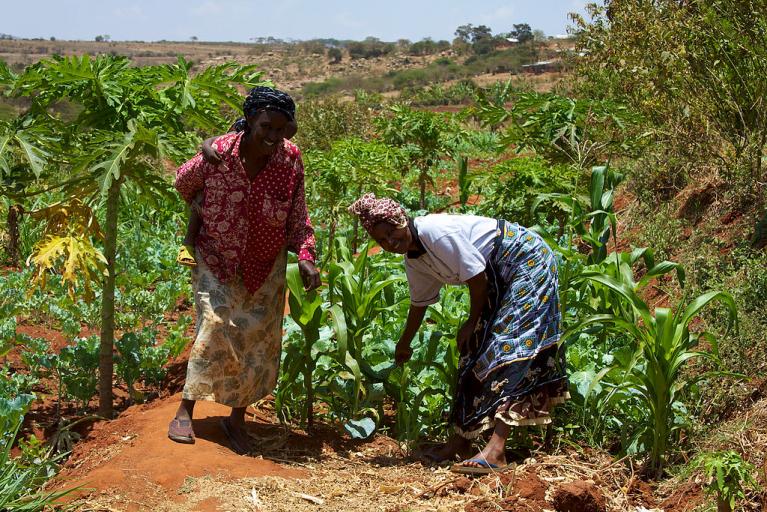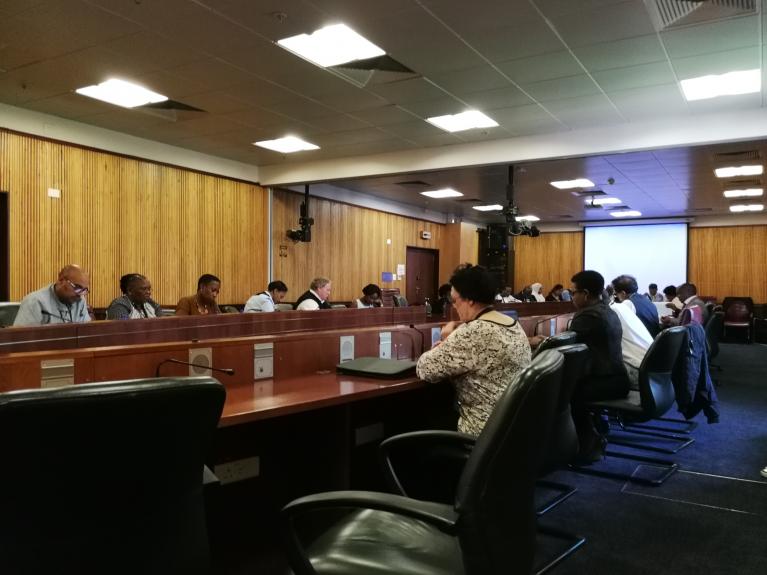Latest Resources

5 December 2023
Draft Plant Breeders’ Rights and Plant Improvement Act Regulations
Further comments submitted by the African Centre for Biodiversity (ACB). In November, the Department of Agriculture, Land Reform and Rural Development (DALRRD) hosted stakeholder consultations in Pretoria and Cape Town on the regulations of the Plant Breeders’ Rights (PBR) and Plant Improvement (PI) Acts. The ACB was quick to accept the invitation to attend both […]

30 August 2022
Regulations of Plant Improvement Act and Plant Breeders’ Rights Act, 2018
Please find here ACB’s comments to the Department of Agriculture, Land Reform and Rural Development regarding the recently published Regulations to implement the Plant Improvement Act 2018, and the Plant Breeders’ Rights Act, 2018. The Department has taken important steps in these Regulations to ensure that certain groups of farmers are exempt from these corporate […]

25 July 2022
The battle over regulation of new breeding techniques in South Africa
– A blog by ACB Director Mariam Mayet Snapshot In October 2021, the South African (SA) government determined that the regulatory and risk assessment framework that exists for genetically modified organisms (GMOs) will also apply to new breeding techniques (NBTs), which make up a host of new genetic engineering technologies. This decision appears to follow […]

28 April 2022
The financialisation of malaria in Africa: Burkina Faso, rogue capital & GM /gene drive mosq...
(Veuillez cliquer ici pour lire en français) The African Centre for Biodiversity (ACB) hereby publishes a new research paper, titled, “The Financialisation of malaria: Burkina Faso, Rogue capital & GM/gene drive mosquitoes.” This paper seeks to understand the financialisation of malaria as a vehicle for rogue capital in a context of a weakened state (through […]

4 March 2020
More toxic GM crops & food for SA; Ineffective GM drought tolerant maize pushed on Kenya and...
In this first alert of the decade, African Centre of Biodiversity research and advocacy officers Linzi Lewis and Sabrina Masinjila provide an update on the status of GM activities, in South Africa and in relation to the region. Summary of current key trends The South African government has authorised field trials of 2,4-D resistant soybean. […]

30 October 2018
Reflections on ITPGRFA, UPOV 1991 and South Africa
Recently the Department of Agriculture, Forestry and Fisheries (DAFF) held national consultations on whether South Africa should accede to two international agreements related to seed: The International Treaty on Plant Genetic Resources for Food and Agriculture (ITPGRFA, or the Treaty) and the International Convention on the Protection of New Varieties of Plants (UPOV) 1991. The […]

31 May 2018
Parliamentary consultation & decision making on SA’s Corporate Seed Bills a Sham!!
The African Centre for Biodiversity (ACB) is deeply concerned that South Africa’s draconian corporate seed Bills were approved by the Parliamentary Select Committee on the 22nd May 2018, with no substantial changes being made. This despite a number of provinces having rejected the Bills entirely on the basis that they did not adequately serve the […]

26 September 2017
Frequently asked questions about the WEMA project
The ACB and TWN have put together a short Frequently Asked Questions (FAQs) about the Water Efficient Maize for Africa (WEMA) Project.

10 August 2017
RNA interference GMOs to enter South Africa and Nigeria
In this alert, the ACB warns that the South African government received an application for the commodity clearance (import for food, feed and processing) of a ‘multi-stacked variety’ of genetically modified (GM) maize – MON87427 × MON89034 × MIR162 × MON87411, which represents the entry of the second generation of genetically modified organisms (GMOs) in […]

31 July 2017
The Water Efficient Maize for Africa (WEMA) project: Real or false solution to climate change?
By Lim Li Ching, Senior Researcher, Third World Network Climate change is an urgent challenge facing farmers in Africa. As our world warms, many farmers are already experiencing devastating consequences, including storms, drought, floods, heat waves and extreme weather events. The implications for food security are severe, with the Intergovernmental Panel on Climate Change (IPCC) […]
